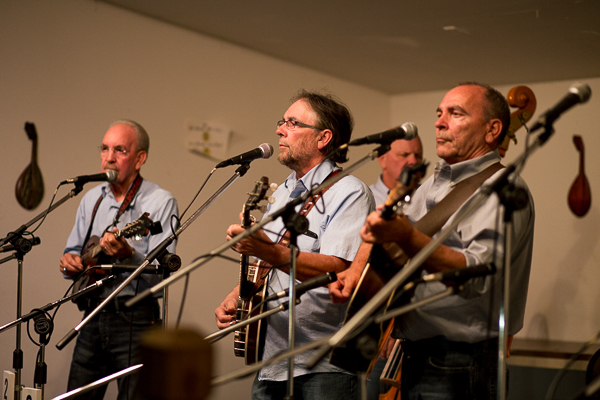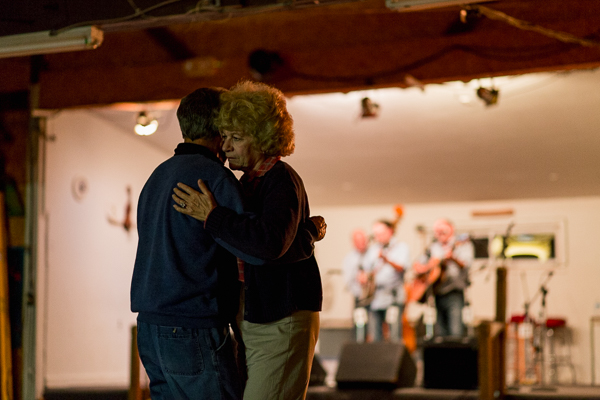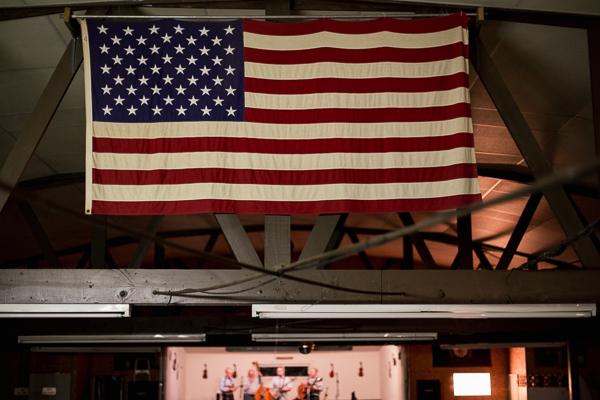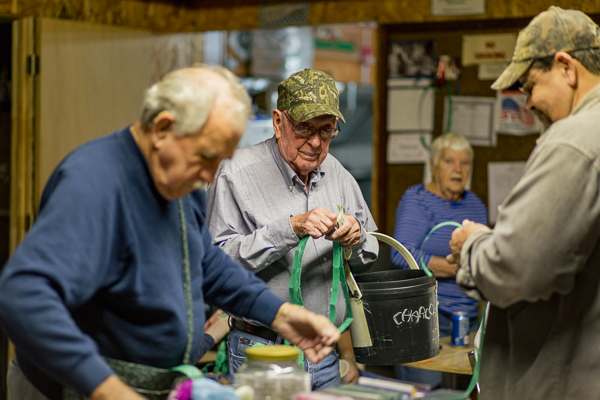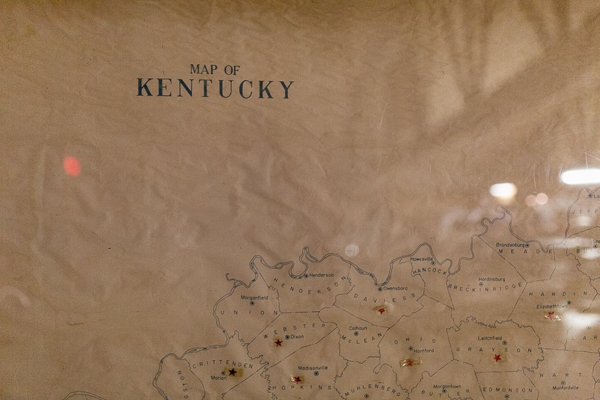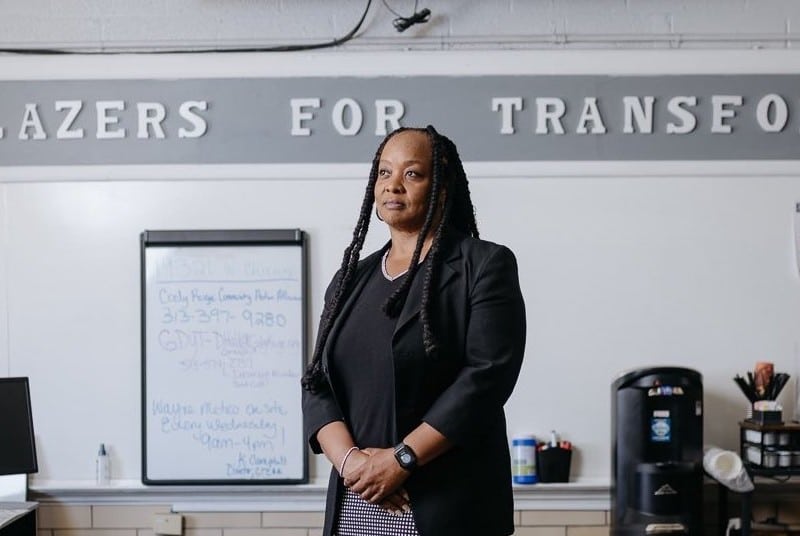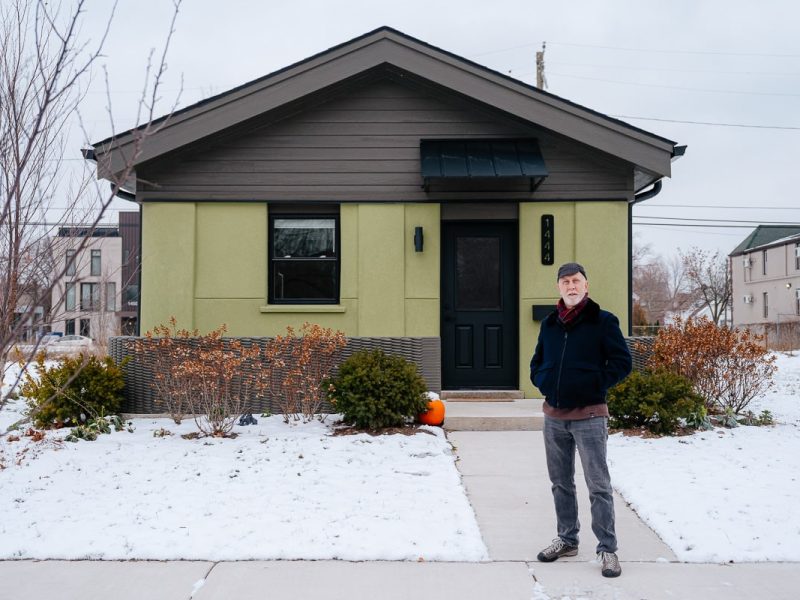Beans and dobros: Preserving what’s left of Appalachia in Detroit
In part two of our series on Appalachian culture in metro Detroit, West Virginia-native Courtney Balestier listens to stories from the Kentuckians of Michigan. And takes home some beans.
I’m not from Kentucky, but at points during a recent Kentuckians of Michigan’ bluegrass concert and dinner, one of many shows and parties the organization holds in its Romulus-area event hall, I felt very much at home. Actually, I felt very much at my grandmother’s home: The women of the Kentuckians insisted on sending me home with an old whipped topping container full of soup beans, the same vessel my grandmother would use to store her beans.
Founded in 1960, the Kentuckians of Michigan is perhaps metro Detroit’s most visible symbol of the mid-century Appalachian migration. For decades, it’s gathered people from all over Kentucky and broader Appalachia, including West Virginia, Virginia, and Ohio. Its members throw Christmas, Halloween, and St. Patrick’s Day parties, knit blankets and hats for local hospitals and soldiers serving overseas, and host bluegrass and country musicians from around the country.
The biggest event is the annual summer picnic, which used to draw thousands. “Appalachian Odyssey,” a multidisciplinary academic study of the migration, reports that 10,000 people attended in 1963. Last year, it was closer to 300.
The younger generations don’t seem to be as interested, and membership is thinning out. Some folks pass away, others retire and move back down south. I went to the hall to learn more about contemporary Appalachian culture in metro Detroit, and who’s maintaining what’s left from the mass migration along the hillbilly highway.
A good way to tell you’re among Appalachians is a discussion of beans. We take our beans—cheap, filling, nutritious sustenance that we’ve grown in our backyards for generations—seriously. When I found the modern-day remains of the Appalachian migration north that I wrote about in my last piece, I was not surprised to find that they included pans of cornbread and chafing dishes of beans.
Earlier that evening, I’d heard a man tell Carlotta Lowe, a native of Pikeville, Kentucky, that the night’s buffet—ham, fried cabbage, mashed potatoes, beans, cornbread, salad and sliced white bread—was the first serving of soup beans he’d had since the group wrapped up its previous season in early 2016.
“Oh, honey,” Lowe said. But then she clarified: “Next week we’ll have soup beans. These are great Northern beans.” She was referring to pinto beans, which are brown, but the man said that, in his family, white great Northern beans were soup beans. In mine, soup beans were also white beans—navy beans, to be exact—so the night’s offering felt right enough to me. As did the buttery scent of fried cabbage that filled my car as I drove home with the leftovers, which I accepted as dutifully as a relative leaving Christmas dinner.
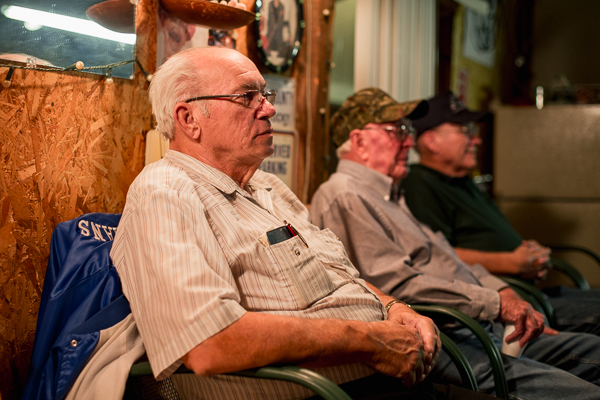
Lowe has no plans to return south. How could she when she gets to pick up her granddaughter from school every day. “I’m very fortunate. I have to two places I can call home,” she said. “Kentucky is my birth home, and Michigan is my adopted home, and I like both of them.”
There is a familiar thread to members’ stories of arriving in Michigan. Most migrated for work, either their own or their spouses’, or were brought as children by parents seeking work. Jobs were much more plentiful up north than in Appalachia, but I hadn’t understood quite how plentiful—I heard several tales of migrants getting jobs the day they got to town. Those who already had family in town tended to settle near them, in places like Ypsilanti, Warren, and Taylor (which locals often call Taylortucky). There is also a notable Appalachian population in the Springwells neighborhood.
On the porch of the Kentuckians hall before dinner—there is an actual dinner bell—I asked about people’s arrival stories, including the discrimination I’d read about in my research. No one had any experience with it. Betty Long, a Virginia native who’s lived here for 50 years, joked that people often said they couldn’t understand her accent. “I’d say, ‘Well, I’ll write you a note, and if you can’t read that, you’re out of luck,'” she said with a laugh.
As we were talking, Powell Conley joined us. Conley’s father moved the family from Salyersville, Kentucky to Ypsilanti in 1951 when Powell was eight. They lived in Willow Run Village, originally built to house workers in the Willow Run manufacturing complex, where World War II aircraft was built.
“Unfortunately, the questions haven’t changed since the ’40s and ’50s,” Conley told me. “Writers are not the most … what’s the word, Burl?”
Burl Stevens, a Wyandotte native whose parents came north from eastern Kentucky, laughed. “Don’t ask me.”
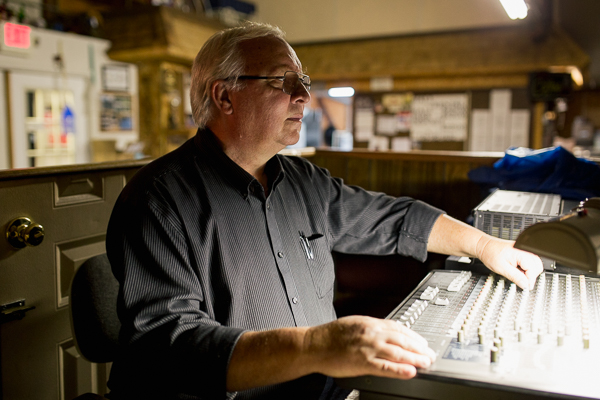
Conley settled on “dependable.” “Nearly all of us that came up here could read and write,” he said. I told him I assumed as much. “Well, many don’t. ‘Buncha dumb hillbillies.'”
Appalachians were just doing “what people did for years and years before,” he said. “They went where the work was. It’s no different now.” Conley met people here from all over the country, and yet, he said, writers could only ever find Kentuckians and West Virginians. I asked what questions I should be asking—what the flip side of that story is.
“The flip side is the humanity of it,” he said. “Those of us who came here weren’t any different than the ones that were already here. We might have talked a little different, we might eat a little different”—he paused—”we did teach ’em how to eat up here.” He laughed and told me about a neighbor woman who used to come by at suppertime and eat so much cornbread that his mother started baking her a separate batch.
And, soon enough, Conley was telling more stories. Stevens too. Conley’s father worked at the Dodge Main plant. When they went on strike, his dad went back to Kentucky to put the crops in. Stevens remembered the occasions when his father would end up with four-day weekends: His mother would have the car packed, and they’d head back to Kentucky as soon as his shift was over.
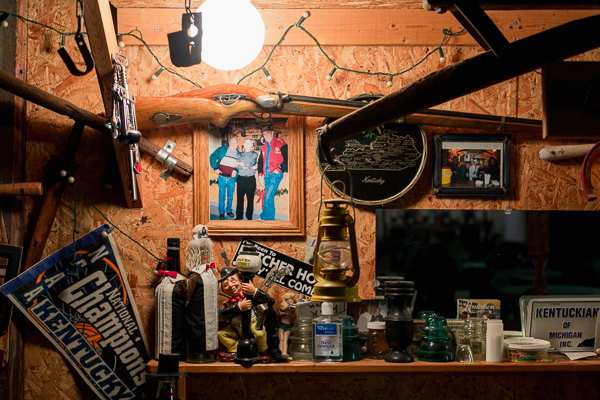
Like Stevens, many children of Appalachian parents were born and raised in Michigan and grew up exposed to Appalachian traditions like food and music (Stevens was playing dobro onstage that night). Mary Pike, 71, a Kentuckians member whose parents came from eastern Kentucky, has such a twang that when her old workplace had a bet about where she was from, nobody won—not one person guessed Michigan. Families traveled back home often, though a common refrain I heard that night was that home is not the same now that their parents and other relations have passed away; many don’t go back as often or at all.
After I left the Kentuckians that night, I kept thinking about Conley’s comment—about the way Appalachians were represented in all the old media I came across, the broad brushstrokes and easy caricatures.
I sympathize with the suspicion Conley felt because I still experience what he described. The national understanding of my home is not exactly nuanced. That can includes Detroit: The year I moved here, a Detroit Free Press reporter tweeted an incest joke about West Virginia.
From the “Beverly Hillbillies” to the most recent season of “American Horror Story,” casual discrimination against rural people has been normalized practice for decades. It is assumed that we must be poor, dirty, dumb.
All that was on my mind as I sat down to write, and as I revisited a section on the Kentuckians of Michigan in “Appalachian Odyssey.” The book noted that the group was often called upon to answer questions about the life of Appalachians in southeastern Michigan, and I felt the weight of that too. As a writer, of course, I saw what a wealth of information the Kentuckians represented, all those stories in one room. But, as an Appalachian, I felt the fatigue of having to account for everything people think they know about you, for some experience that is expected to be homogenous, having to disassemble your way of life for their inspection and spend your time disproving instead of just being.
It was natural that the members of the Kentuckians would continue their traditions wherever they settled; many people do. I understood where Bobbie Sue Williams, a now-deceased officer of the Kentuckians, was coming from when she told two of the book’s authors, “I really don’t know what they expect from us.”
All photos by Nick Hagen.
